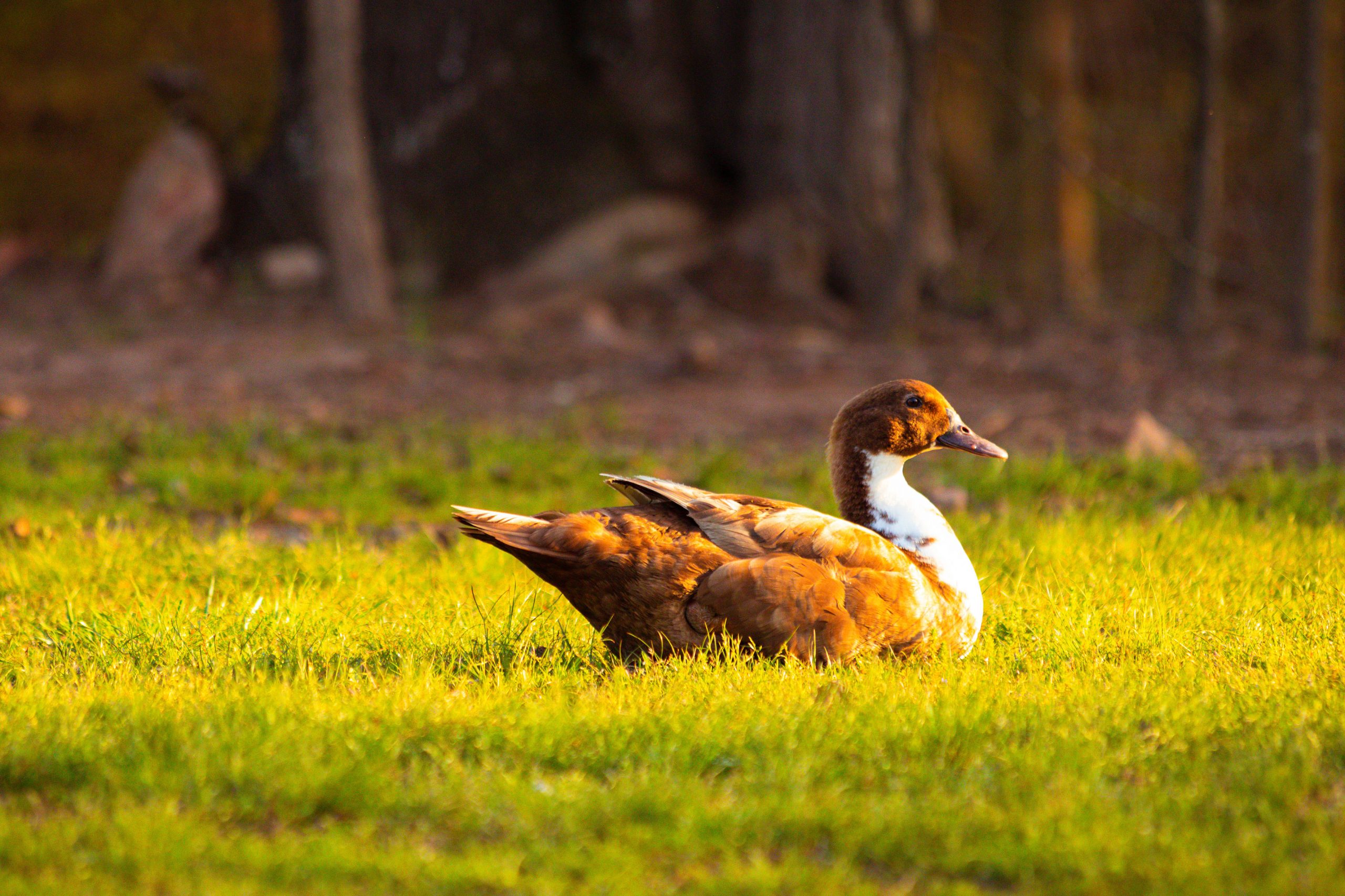There is a saying that chickens are the “gateway drug,” of livestock. Many of us have started out with chickens! Raising chicks into healthy adult chickens takes some know-how and practice.
All joking aside, you need to know the nutritional needs of ducks before you decide to add them to your flock. Ducks and chickens can live together in the same area, but ducks will have different nutritional needs. Ducks tend to be messier than chickens by nature, so ample room is a must.
Water, water, and more water!

The number one key to healthy ducks is access to lots of clean water. Ducks must have water to safely consume food. In the wild, ducks are dabblers. Their bills are specially designed with small combs along the inside of the mouth. After taking a mouthful of water and muck, the duck will push the water out of its mouth, over the combs, thus trapping any yummy food morsels. In captivity, ducks will pick up a mouthful of feed, and dip their bills into water. Just like in the wild, domesticated ducks mix the feed and water together. This mimics filter feeding and also helps the ducks swallow. Ducks must be able to actually submerge their entire bills into the water, so make sure they have a pan of water, not water nipples or a regular chicken waterer.
Ducks need niacin.
Niacin is a much needed type of Vitamin B. Without niacin, domesticated ducks can begin to develop abnormalities, such as swollen legs and inward turning feet. Luckily, niacin is easy to find. It is most easily found in brewer’s yeast, which can be purchased online or in your local feed store. Adult ducks need 10 mg of niacin daily. As soon as you bring your ducklings home, start sprinkling a small scoop of powdered brewer’s yeast directly on their waterfowl ration.
Niacin can also be found in smaller quantities in some favorite treats for ducks. Green english peas, fresh fish, pumpkin, sweet potatoes, and canned salmon or tuna. Ducks are omnivores, so like chickens require a varied diet of plant matter and animal proteins.
(The irony is bread products contain niacin. It is not encouraged to feed ducks too much bread. Bread is non-nutritious and can easily become impacted in the duck’s throat, causing choking.)
Like chickens, ducks are omnivores. An omnivore needs to consume both plant and animal matter. Be sure to give your ducks lots of healthy treats, such as sliced grapes, leafy greens, oats, corn (cracked or whole), bird seed, and table scraps.
Ration Requirements
Starting out, ducklings need a duckling starter crumble. This needs to be specifically made for waterfowl, at least for the first 3 weeks. Chick starters contain too much protein. Too much protein can cause deformities, such as angel wing, in young ducklings. After 3 weeks of age, you can begin feeding an adult waterfowl ration, or layer pellet for chickens.
Like chickens, duck also need access to an insoluble grit, such as oyster shells. Leave the grit out in a separate pan for free choice eating. Ducks can be especially susceptible to harm from moldy feeds. Be sure to clean your ducks’ feed often and don’t allow it to become soaked on the ground.
Ducks are great free-rangers and will greatly benefit from getting outside to look for supplemental food. A coop is okay, a yard is better, and an actual pond is the best environment for any duck. With a little preparation, anyone can raise ducklings. Ducklings grow incredibly fast and are an entertaining addition to any homestead; just don’t forget your niacin and you’ll become successful fast at raising ducks!